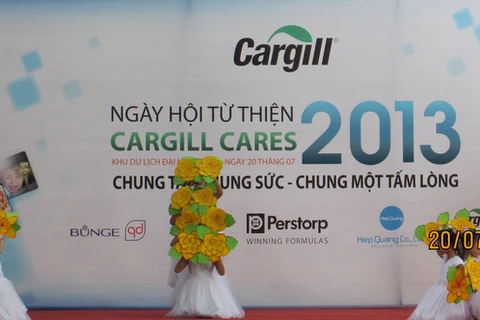HCM City (VNA) – The animal feed market in Vietnam has a relatively high potential, which has prompted Cargill group to invest more in the country, according to the US group’s Chairman David McLennan.
Talking to the press in Ho Chi Minh City on November 18, McLennan said plans for new factories demonstrate the group’s commitment to the country.
Cargill is constructing its 12th animal feed plant in Vietnam with a total investment capital of 30 million USD in the southern province of Binh Duong. The factory, with a capacity of 260,000 tonnes a year, is expected to go into operation in the first quarter of 2017.
The group has invested 180 million USD to develop its animal feed mills system with a total capacity of 1.3 million tonnes a year in the country since 1995.
Additionally, the groups signed a 10 million USD deal with the Sai Gon International Terminals Vietnam (SITV) to build warehouse in Phu My.
Besides expanding its investment in Vietnam, Cargill pledges to support farming households and small farms by providing them with training in animal breeding, thus preparing them for upcoming free trade agreements to which Vietnam is a member, including the Trans-Pacific-Partnership (TPP) agreement.
At the same time, the group also plans to expand its charity work as its commitment to the sustainable development of the group in Vietnam.
To date, Cargill has built more than 70 schools throughout the country and provided assistance to flood-hit victims, scholarships to poor students and rehabilitation equipment to disabled orphans.-VNA





















